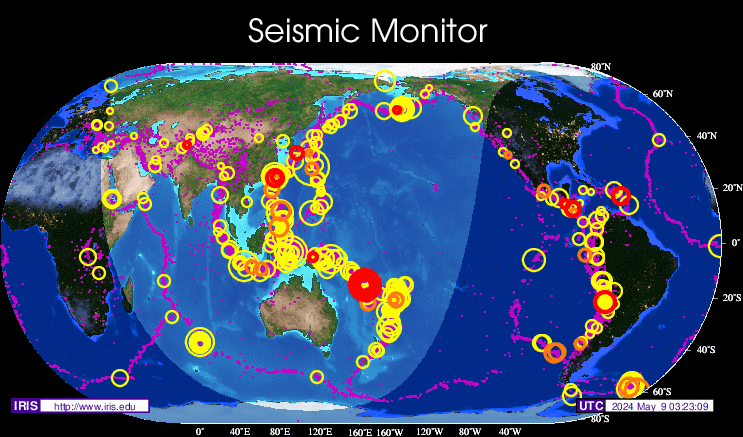Why this blog?
Until this moment I have been forced to listen while media and politicians alike have told me "what Canadians think". In all that time they never once asked.
This is just the voice of an ordinary Canadian yelling back at the radio -
"You don't speak for me."
email Kate
Goes to a private
mailserver in Europe.
I can't answer or use every tip, but all are appreciated!


Katewerk Art
Support SDA
Paypal:
Etransfers:
katewerk(at)sasktel.net
Not a registered charity.
I cannot issue tax receipts
Favourites/Resources
Instapundit
The Federalist
Powerline Blog
Babylon Bee
American Thinker
Legal Insurrection
Mark Steyn
American Greatness
Google Newspaper Archive
Pipeline Online
David Thompson
Podcasts
Steve Bannon's War Room
Scott Adams
Dark Horse
Michael Malice
Timcast
@Social
@Andy Ngo
@Cernovich
@Jack Posobeic
@IanMilesCheong
@AlinaChan
@YuriDeigin
@GlenGreenwald
@MattTaibbi
Support Our Advertisers

Sweetwater

Polar Bear Evolution

Email the Author

Pilgrim's Progress

How Not To Become A Millenial

Trump The Establishment
Wind Rain Temp

Seismic Map

What They Say About SDA
"Smalldeadanimals doesn't speak for the people of Saskatchewan" - Former Sask Premier Lorne Calvert
"I got so much traffic after your post my web host asked me to buy a larger traffic allowance." - Dr.Ross McKitrick
Holy hell, woman. When you send someone traffic, you send someone TRAFFIC.My hosting provider thought I was being DDoSed. - Sean McCormick
"The New York Times link to me yesterday [...] generated one-fifth of the traffic I normally get from a link from Small Dead Animals." - Kathy Shaidle
"You may be a nasty right winger, but you're not nasty all the time!" - Warren Kinsella
"Go back to collecting your welfare livelihood. - "Michael E. Zilkowsky
Straight up, straight down reaching heights not much higher than a high altitude balloon and not coming anywhere near escape velocity. I’m not seeing the fuss. We passed that technical landmark some sixty years ago.
Rich idiots will pay to play astronaut for several minutes, then a rocket will blow up and that’ll be that.
What’s impressive is that it was done without any government funding (well, beyond the massive technology subsidies Amazon gets, but let’s leave that aside for now). This is as it should be. Space exploration was always a military endeavour first and foremost; Earth orbit is the ultimate high ground. Space exploration beyond that is not something taxpayer dollars need to be spent on except as a national defense issue.
What Bezos and Branson have done is demonstrate that commercial suborbital flight is technically feasible. Whether it’s economically feasible is a completely different matter. I suspect that like the Concorde, it won’t be.
The shape of Bezos’s rocket is just … no comment on his psyche.
My thoughts as well:
https://www.youtube.com/watch?v=ARXqNc5DGXU
There’s something to consider about what happened 60 years ago.
There was a race to put the first man in space, though it didn’t really matter how long he stayed there. Had Shepard flown first, the Americans could have claimed the credit and the space race would likely have ended there.
The fact that Gagarin flew for a single orbit not only meant that the Soviets were first but that the Americans were well behind. There was little consideration given to about what to do after that suborbital flight had finished, so going into orbit, let alone for a significant amount of time, or even further in space, wasn’t part of the original plan.
This was the time of the Cold War and the two countries had to show which had the superior technology. That was what inspired Kennedy’s announcement about the Americans going successfully to the moon and back. Doing that was like a long downfield pass to try and get a touchdown.
Think about it: the only experience that the Americans had in space was 15 minutes and it was a suborbital hop. The spacecraft used was a custom design and the boosters at the time were often unreliable. Yet Kennedy thought that they could beat the Soviets to the moon based on just that.
Nowadays, there’s no such race, even with the Chinese. Virgin Galactic and Blue Origin are simply two rich men indulging in their personal hobbies with no real objective. Yes, Musk is doing the same thing, except he does have an objective. He wants to make money from spaceflight and he wants to go to Mars.
If you want to hear a discussion about it, listen to tonight’s edition of The Space Show when it’s archived and uploaded to the site:
https://thespaceshow.com
and look for Broadcast 3725 with Rand Simberg as the guest.
“There was a race to put the first man in space, though it didn’t really matter how long he stayed there. Had Shepard flown first, the Americans could have claimed the credit and the space race would likely have ended there.”
I doubt that very much. It was Sputnik and not Gagarin that freaked out the USA and started the space race in earnest. Shephard flew and also in May of 1961, JFK promised to put an American on the moon. Space the last frontier!
What concerned the Americans was that the Soviets might have a booster that could launch a nuclear weapon. As it turned out, that fear was misplaced.
For one thing, the Soviet boosters were at least as unreliable as those the Americans developed. Also, the Soviet nukes were, because of their somewhat clumsy design, larger and heavier. Launching those would have required more powerful boosters, which the Soviets didn’t have at the time.
In addition, U-2 photos showed that Khruschev was bluffing and that the Soviets didn’t have near as many nuclear weapons as he had boasted. Eisenhower knew that but, because U-2 overflights were a violation of Soviet airspace, he couldn’t say anything as those photos were obtained illicitly.
Until 1961, the space race was more about lift capability and, let’s not forget that many of the Soviet “firsts” were simply for show and to give them bragging rights. Putting Gagarin into orbit was just another political stunt.
The Americans had looked at putting a man into space several years before Shepard’s flight. It would have been a coup had he been first as it would have shown the rest of the world that while the Americans didn’t put the first satellite into orbit (the reasons for which were, to a great extent, due to internal politics), they not only caught up to the Soviets but exceeded them by putting a man there.
End of story, end of race. However, Gagarin’s flight had great propaganda value and Kennedy needed to have something that would put the Americans well ahead, not just technically but politically as well. A space station was suggested, but that would, again, have been a competition over booster rockets. One needs a heavy lift capability to put all the materials and components into orbit.
Dr. Hugh Dryden, who became the deputy administrator of NASA after it was formed, suggested that the long-term goal of the Soviets was to land on the moon. That convinced Kennedy and, about 3 weeks after Freedom 7, he made his bold announcement.
Very expensive amusement ride.
Agreed. Forty bucks gets you a ride on the mind bender. Seventy bucks: play all day.
The Virgin Galactic development stream for their vehicle will eventually lead to a sub-orbital transport if it continues, and the current vehicle could also be used for some experimental purposes as is. The vehicle has a large cabin and could be used for microgravity experiments.
Blue Origin is working towards a lunar lander, but, I think Musk is going to completely dominate in that area. The technologies and lessons learned in the New Shepard program will be of use for the lander .
Even though the two billionaires here are “grandstanding” this development would not be happening without them leading the way. I wouldn’t want it to be just NASA and other national space programs to be the sole developers of space technology.
“sub orbital transport” ummm….no
Blue Origin had plans for a lunar lander to be used by the Artemis program, but NASA awarded the contract to SpaceX. The same thing happened with Apollo and, that time, Grumman won.
However, Bezos, being a sore loser, filed a protest, as did a firm by the name of Dynetics, which was also working on a lander.
Congress backed off on the sole-source contract and is considering having both Blue Origin and Dynetics get contracts as well. It’s called government pork as I’m sure that many of the congressmen who pushed for those other contracts could have harvested much of that money for their districts.
At least Virgin Galactic developed new-ish technology (Burt Rutan’s launch aircraft.)
Bezos just re-invented the same ancient rocket technology that Hitler used to bomb London, albeit with modern computers to flip all the switches.
It isn’t whether new technology is or can be invented. It’s about reducing costs. In that respect, SpaceX has the lead and what they’ve done is being imitated. Blue Origin is one that’s adopted reusable boosters and I heard rumours that the Chinese might be trying to develop them as well.
What BO did yesterday demonstrated that spaceflight doesn’t have to be restricted to the government or the military. A paying general public can now have access to space as well.
There’s gold in them thar hills!
My dad got to watch Neil Armstrong walk on the moon.
I get to watch the guy who killed small businesses ride a penis into space.
Leftist politicians LOVE monopolies … so long as they shower them with $$$ and control Speech. We need Trump to replicate the Trust-busting victories as did Teddy Roosevelt. They’re both men who came from immense wealth … who understood that capitalism is crippled by monopolies.
I’m your dad’s age, and was glued to my TV on a beautiful summer day … July 20, 1969. And the music was better too … 🙂